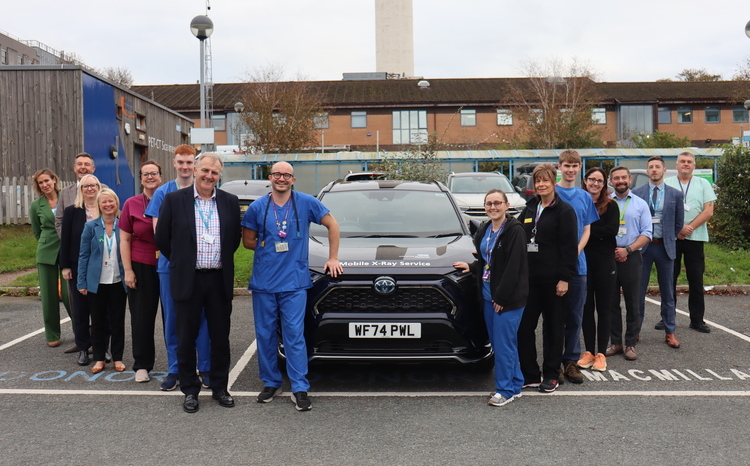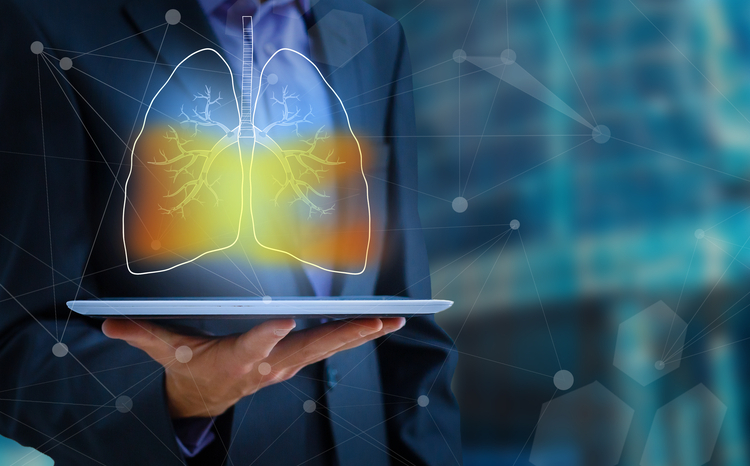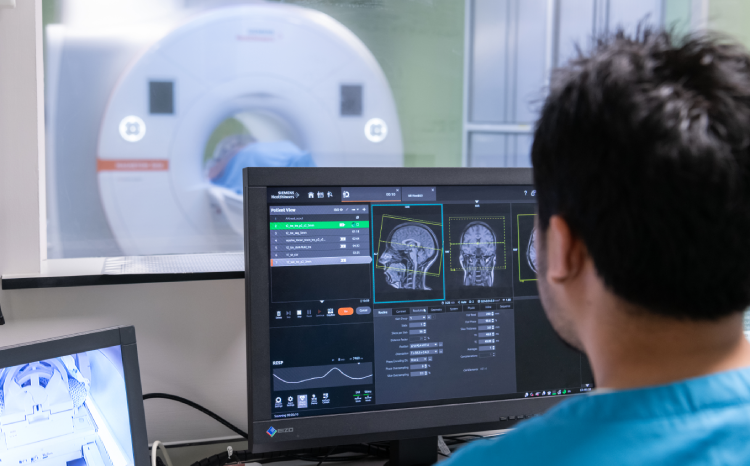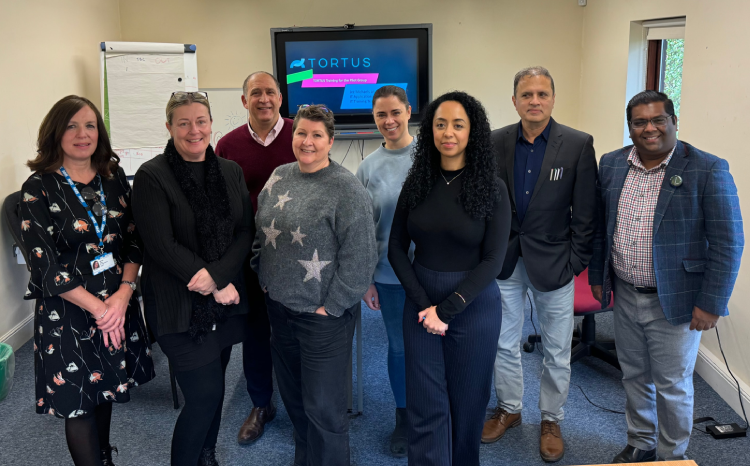Plymouth pilot gives frail patients X-rays through car service
- 4 November 2024

- University Hospitals Plymouth NHS Trust has launched a pilot to take X-rays to patients through a car service
- A car complete with a full X-ray kit and staffed by specialist radiographers and imaging healthcare assistants, visits frail patients who have had falls
- The 12-month project, which launched on 30 October 2024, aims to support care close to home and reduce unnecessary patient admissions to the emergency department
A pilot project has been launched at University Hospitals Plymouth NHS Trust (UHP) to support care close to home and reduce unnecessary patient admissions to the emergency department through an X-ray car service.
Under the project, which launched on 30 October 2024 and will last for 12 months, a car fitted with a full X-ray kit and staffed by specialist radiographers and imaging healthcare assistants, drives around Plymouth and the surrounding areas offering support to patients who have fallen.
The X-ray car team will attend frail and vulnerable patients who have had a fall and may have a fracture.
Once the X-ray is completed, the hospital clinical team are provided with the result and organise the correct management plan for the type of injury present, which may involve other urgent community response teams, or if there is a more serious injury, conveyance to hospital.
Anne Hicks, associate medical director for integrated care pathways at UHP, said: “We’re really excited to get this service underway and know that it is the best thing for our patients who fall in the community.
“We are really pleased about what this service will offer from a patient perspective.
“Having had a fall or having injured yourself at home, and to then access the appropriate help, and get the diagnosis and the treatment plan in the comfort of your own home or community place of care – that’s what this service is all about.”
Hicks also confirmed that despite the pilot being “in its infancy”, UHP are aiming respond to three to five patients a day through the X-ray car service, which is three to five more ambulances out on the road each day responding to emergencies.
Last year, approximately 2,000 patients over the age of 55 attend the emergency department at UHP and were found not to have suffered a fracture. Nearly 1,300 of those patients came by ambulance with 1,000 further admitted into the hospital.
The X-ray car service aims to reduce these numbers and free up bed capacity for other patients at the trust.
Rachel O’Connor, director of integrated care, partnerships and strategy at UHP, said: “It is wonderful to see our colleagues start to offer this service to our local patients and see the benefits this will bring for our patients in the community.
“It is really important that we are introducing ways for patients to be treated in their homes or places of residence and continue to support their independence and care closer to home.
“It’s a big difference for radiographers to provide accurate scans for those who are frail and vulnerable and provide the expertise in the community to treat people in their own homes.
“The pilot is a step forward in bringing our care to where people live, providing early intervention and supporting, and preventing when not necessary, onward journeys to hospital.
“We believe this will be a much better experience for our patients and improve their outcomes and recovery. I am really thankful to our colleagues and partners for enabling this pilot to get off the ground.”
Meanwhile, the National Institute for Health and Care Excellence (NICE) recently approved the use of four AI technologies to help doctors detect broken bones on X-rays.




